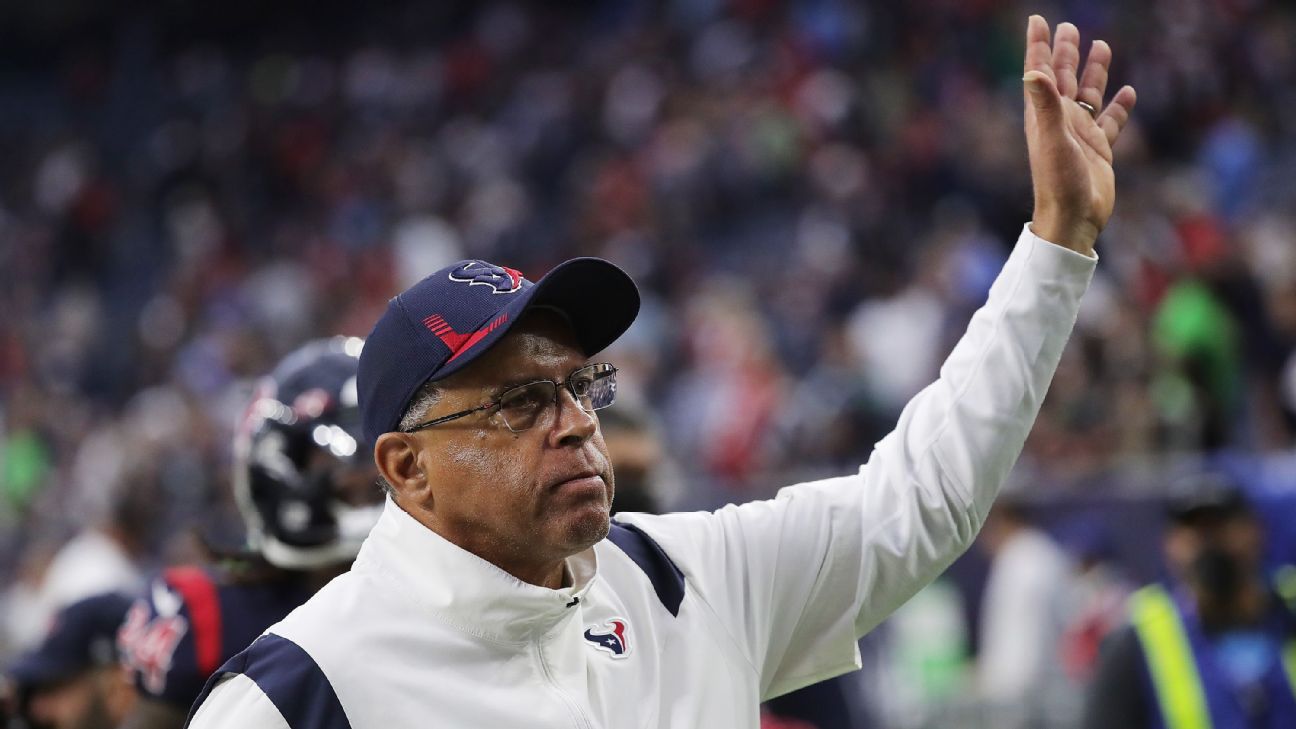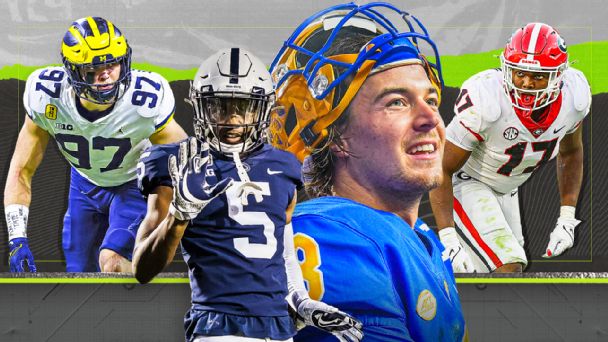
HOUSTON — When the Houston Texans hired David Culley, team chairman and CEO Cal McNair said the head coach’s “vision and ability to bring people together” was the reason the organization felt Culley was “our guy.”
Not once in that news conference did McNair or general manager Nick Caserio speak about building around Culley or his ability to lead the team into the future.
Less than a year after that news conference, the Texans are once again looking for a head coach. It’s clear they never intended for Culley to be the long-term solution.
By firing Culley, who was coaching a roster turned over by Caserio and without quarterback Deshaun Watson, the organization showed it never intended to give Culley a real shot at making it through this rebuilding period. That, or they didn’t understand the quality of the roster put together for Culley. You can guess the most likely answer, but either is damning evidence against the current ownership and front office.
That’s before mentioning the team is firing a Black head coach in a league that had just three last season and now only one (Pittsburgh Steelers coach Mike Tomlin) after the Miami Dolphins fired Brian Flores earlier this week. Culley was the only Black head coach hired in 2021, and his firing brings to mind what happened to Steve Wilks in Arizona. The Cardinals fired Wilks in 2019 after one 3-13 season.
Culley was also tasked with winning games with his third-string quarterback, rookie third-round pick Davis Mills. Because Watson would not play for the Texans, Mills started six games while Tyrod Taylor was on injured reserve with a left hamstring injury. Mills also replaced Taylor for the final five games of the season after the veteran was benched in Week 13.
• Big shoes to follow for Cowboys’ Parsons
• Why the Falcons should bring back Ryan
• Ravens: From No. 1 seed to out playoffs
Culley was mostly brought in with a focus on building a positive culture and atmosphere. If players didn’t comply, punishments were handed down. Safety Justin Reid was suspended for a game and linebacker Zach Cunningham was cut for violating team rules. The Texans will have to eat dead money from Cunningham’s contract next year.
Firing Culley, though? That shows the entire organization is in the midst of a rebuild, not just on the field.
A year ago, the Texans interviewed Jim Caldwell, Marvin Lewis, Leslie Frazier, Joe Brady, Josh McCown and Eric Bieniemy. Indianapolis Colts defensive coordinator Matt Eberflus turned down an interview request, as well.
McCown could be a candidate for the job again this year, along with Flores, who worked with Caserio in New England. Flores, of course, coached the one team (the Dolphins) that Watson had agreed to waive his no-trade clause for before the NFL’s trade deadline.
Other possible candidates to replace Culley include Patriots offensive coordinator Josh McDaniels, Texans passing game coordinator and quarterbacks coach Pep Hamilton and Patriots linebackers coach Jerod Mayo.
It’s possible Culley was the best candidate the Texans could hire last season. Could you blame the rest of the potential applicants?
Who would want to coach a team coming off a four-win season with a quarterback in Watson, who first asked for a trade in January before being served with 23 civil lawsuits alleging inappropriate behavior and sexual assault, on the roster?
One year later, is the Texans job any more attractive than it was in January 2021? Candidates will no doubt have seen what happened to Culley, who won four games and saw his team’s best performances come late in the season.
Yes, the Texans have the No. 3 pick in the NFL draft. However, they have to absorb $34.4 million of dead money that counts against their salary cap for players who no longer play for the team. And that doesn’t include the $40.4 million Watson will count against the cap if the Texans can’t trade him and he’s on the active roster again in 2022.
In his news conference before the season, Caserio said, “I’ll probably put my foot in my mouth for saying this, but it’s not as much outcome-oriented as process-oriented, and that’s what we’re trying to do and build.”
While it’s unclear what part of Caserio’s “process” Culley got wrong — in addition to it being questionable that the Texans didn’t use the final weeks of the regular season to use their own evaluation process for Culley, instead dragging it out longer than any other NFL team — it’s clear McNair believes in Caserio.

The team owner dropped the coaching search he spent more than $500,000 on last year looking for a new general manager once he heard Caserio was available. He disregarded the information gathered and hired who he wanted all along — the former Patriots director of player personnel.
Caserio now gets to hire his second head coach in as many years with the Texans. Most general managers don’t get more than that during their tenure with a team, although there’s reason to believe this case might be different.
After the Texans hired Caserio, McNair said the organization was going to improve “brick by brick,” and talked about how he and Caserio would “work together, we’ll cooperate, we’ll collaborate [and] cooperate.”
By firing Culley after a season that saw the Texans win the same number of games as they did the previous year — without its biggest stars Watson and J.J. Watt and with a roster made up mostly of veteran players on one- or two-year deals — Houston showed it never was going to rebuild around Culley.
They hoped he’d create a positive environment during what was no doubt going to be a brutal season full of defeat. Firing him afterward really summed up the season and might leave a bad taste in the mouths of the players in the locker room — although more than half of them probably won’t be back in 2022 — and the fanbase.
So now, it’s up to McNair and Caserio. They have to get this hire right. Support for the Texans in Houston is already at an all-time low. Winning cures everything, but how long of a leash will McNair give Caserio to get there?
